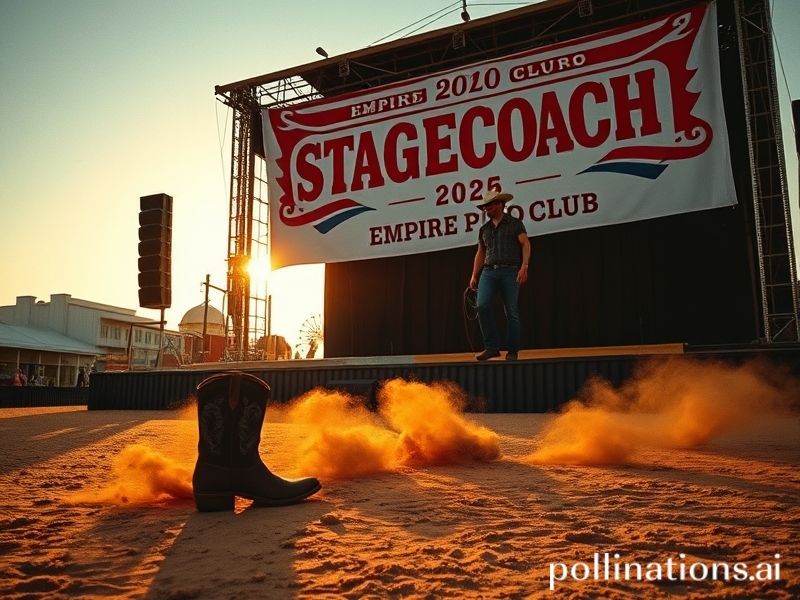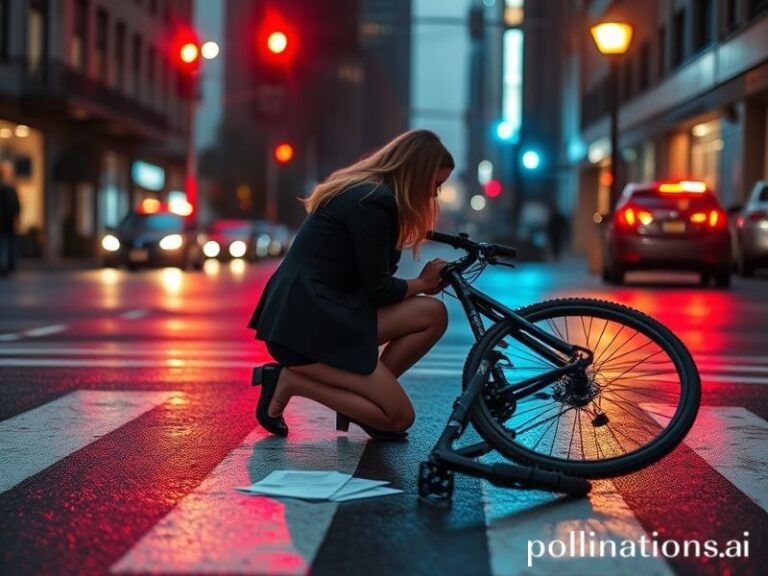Stagecoach 2026: How America’s Country Music Festival Became the World’s Most Expensive Identity Crisis
**Stagecoach 2026: America’s Most Patriotic Export Since Diabetes**
From the dust-choked Empire Polo Club in Indio, California—where the grass is imported and the authenticity is exported—comes the latest installment of America’s most profitable cultural imperialism: the Stagecoach 2026 lineup. While the rest of the world grapples with actual problems, country music’s premier festival has assembled a roster so aggressively American it makes McDonald’s look like UNESCO.
This year’s headliners—Morgan Wallen, Luke Combs, and Carrie Underwood—represent the holy trinity of contemporary country: redemption narratives, working-class cosplay, and the kind of vocal gymnastics that would make an Olympic judge weep. Wallen, fresh from his racial-slur redemption arc, headlines Saturday, proving that in America’s cultural marketplace, forgiveness is just another revenue stream. The international implications are staggering: while European nations debate cancel culture with the gravitas of medieval theologians, America has industrialized it into a quarterly earnings report.
The lineup’s global significance becomes apparent when viewed through the lens of cultural soft power. While China builds actual railroads across Africa, America exports imaginary railroads through songs about them. The festival’s international streaming numbers reveal a peculiar phenomenon: Japanese office workers blasting Chris Stapleton during their 14-hour shifts, German engineers analyzing the metaphysical properties of Florida Georgia Line, and Brazilian teenagers who’ve never seen a pickup truck fantasizing about them with the fervor of Renaissance poets. It’s cultural colonialism with a twang, proving that American hegemony doesn’t require aircraft carriers—just three chords and the truth about beer.
The economic model is brilliantly cynical. Tickets range from $429 to $1,599, not including the $99 “convenience fee” for the privilege of printing them yourself. This year’s innovation: the “Wild West VIP Experience,” where for an additional $2,500, you can watch the same concert but with slightly cleaner porta-potties and the opportunity to purchase $18 artisanal jerky. It’s the kind of late-stage capitalism that would make a Soviet propagandist’s head explode—charging premium prices for the simulation of rural authenticity to urbanites who’ve never mucked a stable.
The festival’s environmental impact deserves its own UN resolution. Fifty thousand people descend on the desert to celebrate music about respecting the land, leaving behind enough plastic to reconstruct the Sierra Nevada. The carbon footprint could power a small nation, but hey, that nation probably doesn’t have a song about trucks, so who’s really winning here? The irony is delicious: celebrating rural values in a location so artificially constructed it makes Dubai look like Thoreau’s Walden.
Perhaps most telling is the lineup’s diversity—of baseball cap brands. While the world debates representation, Stagecoach offers three days of predominantly white artists singing about small-town values to predominantly urban audiences. It’s like watching a Renaissance fair where everyone cosplays as their own cultural past, except the jousting is done with credit cards and the plague is just the standard festival norovirus.
As the world teeters on various brinks—climate, political, economic—America’s response is to gather in the desert and sing about simpler times that never existed. The Stagecoach 2026 lineup isn’t just a concert bill; it’s a $50 million group therapy session for a nation processing its identity crisis through the musical equivalent of comfort food. The rest of the world watches with the same bemused fascination typically reserved for British royal weddings or Australian wildlife videos—horrified, captivated, and slightly grateful it’s happening somewhere else.
In the end, Stagecoach represents America’s most authentic export: the commodification of authenticity itself, packaged and sold back to us at a 400% markup. It’s beautiful, it’s terrible, and it’s streaming worldwide.







